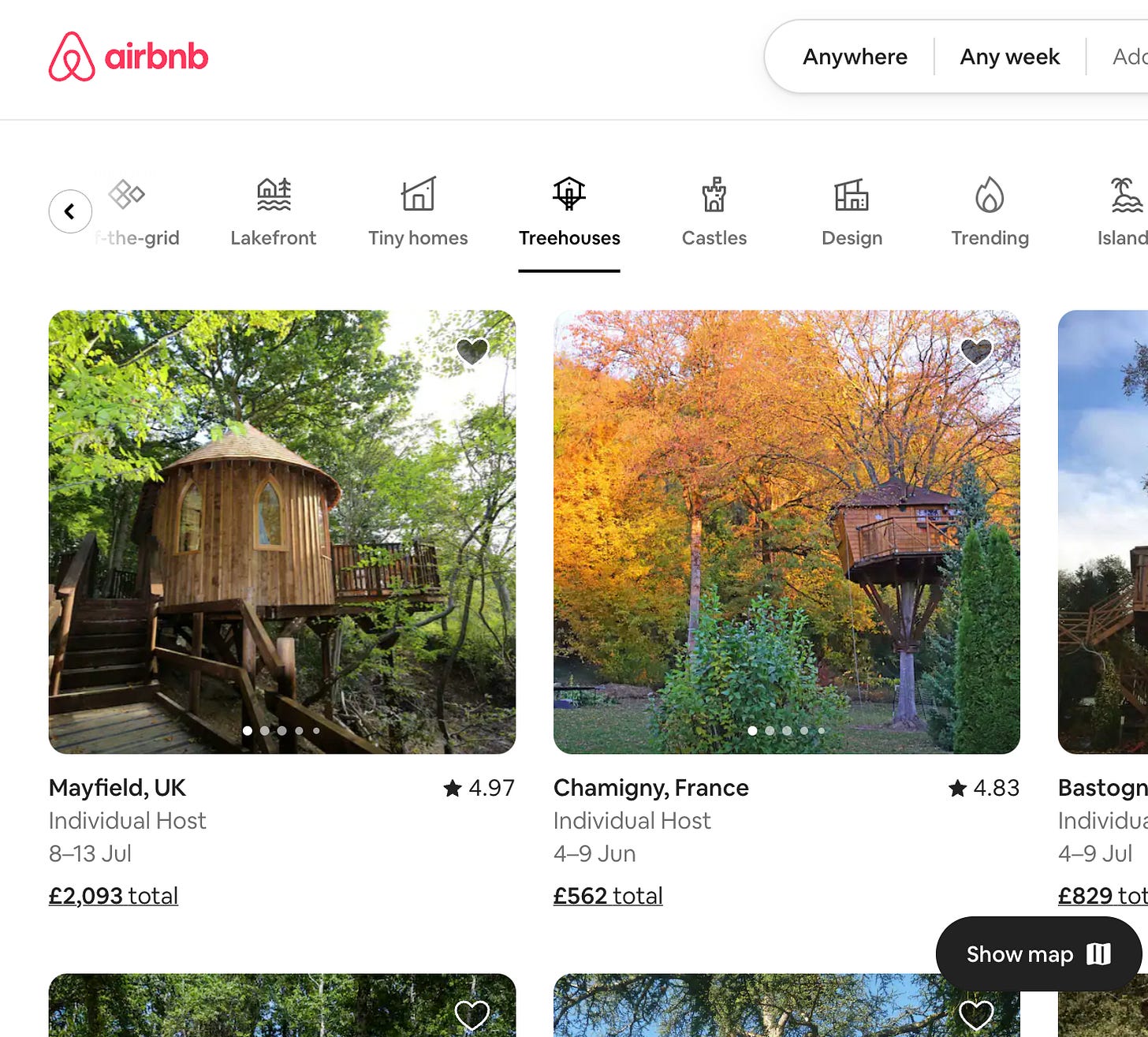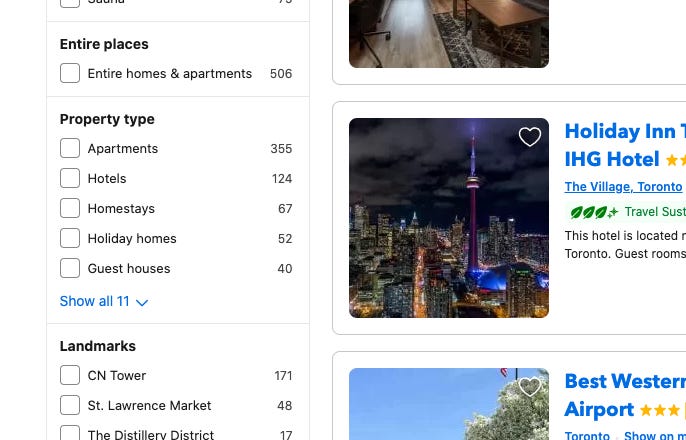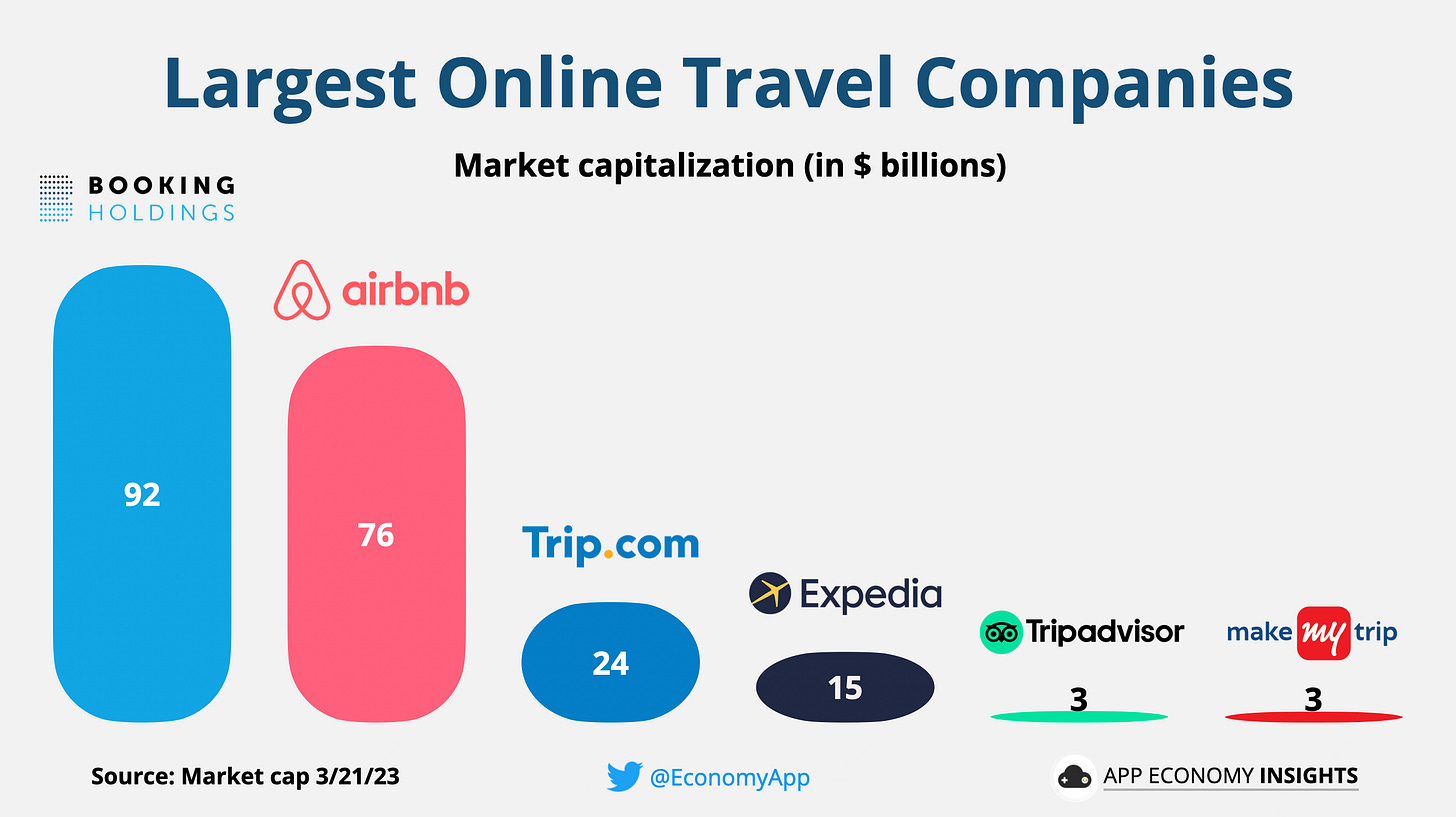Mastering Product Sense: Looking at Airbnb and Booking.com from Various Perspectives
Analyzing two top online accommodation players to enhance product understanding
Product people wear multiple lenses as they navigate their daily work and decision-making. The art of deconstructing and learning from diverse products and companies has a profound impact on shaping our product intuition. Understanding not only a product's purpose but also its limitations is essential. In this post, I'll briefly explore the parallels between Airbnb and Booking.com, two players in the online accommodation booking industry, from various perspectives:
Business Model
Value proposition
User Jobs to be Done (JTBD)
User Experience
Competition
Business Strategy
Business Model Perspective
Analyze a product's business model by examining customer segments, revenue streams, costs, and channels to understand its value creation and delivery.
Airbnb operates as a peer-to-peer marketplace, connecting hosts and guests. The platform earns revenue through commissions from hosts for successful bookings and charges additional fees to guests. It also offers host services like professional photography, property management, and insurance coverage.
Booking.com functions as an online travel agency, partnering with hotels worldwide. The platform earns revenue by receiving commissions from partner hotels for confirmed bookings made through their platform. It offers various advertising and promotional services to its partner properties.

Value Proposition Perspective
Deconstruct a product's value proposition by identifying customer segments, needs, and how the product delivers unique value.
Airbnb's value proposition lies in offering personalized and authentic travel experiences. It allows users to stay in unique properties, connect with locals, and explore destinations as insiders. The platform also provides added features like Experiences, where users can book activities or guided tours led by locals.
Booking.com emphasizes convenience and choice as its value proposition. Users can access an extensive inventory of hotels worldwide, compare prices, and benefit from features like free cancellation and customer reviews to make informed decisions.

It is crucial to not only determine what a product is meant to do, but also what it is not expected to do.
User Jobs to be Done (JTBD) Perspective
Understand the core tasks customers hire a product to do and address their functional, emotional, and social needs.
Airbnb enables travelers to explore unique and immersive accommodations by connecting them with local hosts. Users can experience the feeling of living like a local in a variety of properties, such as cozy apartments, luxurious villas, or even offbeat accommodations like treehouses or boats.
Booking.com focuses on providing a wide range of traditional hotel accommodations to cater to travelers seeking convenience and comfort. Users can easily find and book hotels across various price ranges and locations, ensuring a hassle-free stay.
User Experience Perspective
Assess a product's user experience (UX) through its interface, flows, and interactions, considering user personas, pain points, usability, and visual design.
Airbnb's user experience revolves around inspiring and immersive content. Users can browse captivating property listings with high-quality images and detailed descriptions. The platform facilitates communication between guests and hosts, fostering trust and enabling personalized experiences.
Booking.com offers a user-friendly and efficient experience. The platform allows users to quickly search, compare, and book accommodations. It emphasizes features like sorting results based on specific preferences, displaying availability in real-time, and providing transparent pricing information.
It (applying the right perspective) ultimately helps product managers, entrepreneurs, and anyone involved in building a product for people tailor their decision-making based on a concrete understanding of what problem they are trying to solve at the moment.
Competition Perspective
Study competing products to understand their strengths, weaknesses, and differentiation strategies in terms of features, pricing, positioning, and marketing.
Airbnb differentiates itself by providing unique stays and local experiences. It offers a wide range of property types, including apartments, houses, treehouses, and castles, catering to travelers seeking distinctive and immersive accommodations. It also encourages community building through host and guest reviews and allows users to join social impact initiatives.
Booking.com focuses on its extensive global inventory of traditional hotels. It offers a vast selection of accommodations across different price ranges, appealing to travelers who prioritize options and competitive pricing. The platform also provides deals and discounts, loyalty programs, and a Price Match feature.
Business Strategy Perspective
Evaluate a product's strategic positioning by considering its target market, competitive advantages, and long-term vision in alignment with business goals and market trends.
Airbnb focuses on expanding into new markets, investing in community-building initiatives, and diversifying into other travel-related services. It aims to enhance user engagement through features like Experiences and Adventures, offering curated activities and travel packages.
Booking.com aims to maintain its market dominance by expanding its global presence, optimizing its technology infrastructure, and establishing partnerships with various accommodation providers. The platform invests in marketing campaigns and loyalty programs to retain existing customers and attract new ones.
Keep in mind there are of course many other perspectives to look for (Technical architecture and stack, Investment and financial situation, Marketing activities etc). Understanding these perspectives and applying the right one at the right time is a crucial skill to develop. It ultimately helps product managers, entrepreneurs, and anyone involved in building a product for people tailor their decision-making based on a concrete understanding of what problem they are trying to solve at the moment.









I find it fascinating and insightful that you compared two well-known businesses in a dense text format. Your approach provides a comprehensive and holistic view, which is valuable in understanding lenses better. Well done! 👍